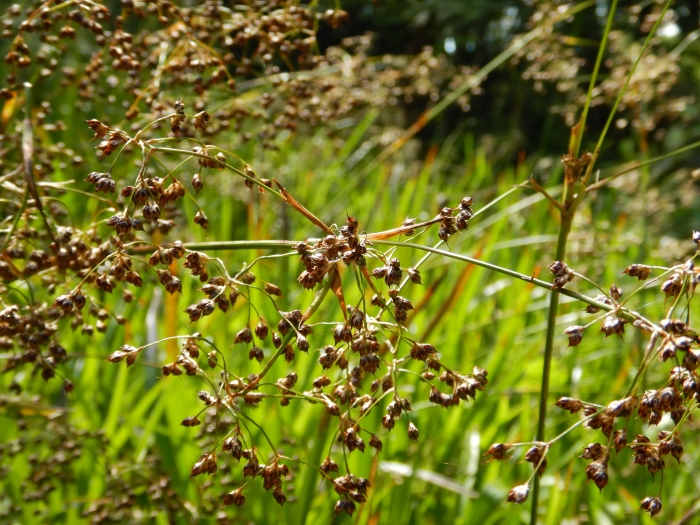Great Wood-Rush
(Luzula sylvatica)
Great Wood-Rush (Luzula sylvatica)
/
/

Matt Lavin
CC BY-SA 2.0
Image By:
Matt Lavin
Recorded By:
Copyright:
CC BY-SA 2.0
Copyright Notice:
Photo by: Matt Lavin | License Type: CC BY-SA 2.0 | License URL: https://creativecommons.org/licenses/by-sa/2.0/ | Uploader: Matt Lavin | Publisher: Flickr |















































Estimated Native Range
Summary
Luzula sylvatica, commonly known as Great Wood-Rush, is an evergreen perennial herb native to a variety of habitats including damp woodlands, shady forest margins, and grasslands across Europe. It is the largest of the woodrushes, with stems typically reaching 30–80 centimeters (12–31 inches) in height. The plant forms dense clumps of bright green leaves that are glossy, flat, and linear, maintaining their color throughout the winter months. From mid-spring to summer, Great Wood-Rush produces inconspicuous flowers in open panicles; these flowers are chestnut-brown and appear in both dense and lax clusters, adding a subtle charm rather than a bold statement to the garden.
Great Wood-Rush is valued for its ability to thrive in shaded conditions, making it an excellent ground cover for woodland gardens or shaded borders. Its evergreen foliage provides year-round interest, and the plant is relatively low maintenance, requiring only medium amounts of water and well-drained soil. It is also useful for stabilizing soil in shaded areas. While it prefers part shade or full shade, it can tolerate a range of soil types, from clay to loam, as long as they are not too dry. Gardeners should be aware that in some conditions, Luzula sylvatica can spread vigorously, potentially becoming invasive in ideal growing conditions.CC BY-SA 4.0
Great Wood-Rush is valued for its ability to thrive in shaded conditions, making it an excellent ground cover for woodland gardens or shaded borders. Its evergreen foliage provides year-round interest, and the plant is relatively low maintenance, requiring only medium amounts of water and well-drained soil. It is also useful for stabilizing soil in shaded areas. While it prefers part shade or full shade, it can tolerate a range of soil types, from clay to loam, as long as they are not too dry. Gardeners should be aware that in some conditions, Luzula sylvatica can spread vigorously, potentially becoming invasive in ideal growing conditions.CC BY-SA 4.0
Plant Description
- Plant Type: Grass
- Height: 1-2 feet
- Width: 1-2 feet
- Growth Rate: Moderate
- Flower Color: N/A
- Flowering Season: Spring, Summer
- Leaf Retention: Evergreen
Growth Requirements
- Sun: Part Shade, Full Shade
- Water: Medium
- Drainage: Medium
Common Uses
Bank Stabilization, Deer Resistant, Drought Tolerant, Groundcover, Low Maintenance
Natural Habitat
Native to damp woodlands, shady forest margins, and grasslands across Europe
Other Names
Common Names: Greater Wood-Rush , Great Woodrush , Waldhainsimse , Luzule Des Bois , Grote Veldbies , Storfryle
Scientific Names: Luzula sylvatica , Luzula maxima , Juncoides sylvatica , Luzula sylvatica f. altissima
GBIF Accepted Name: Luzula sylvatica (Huds.) Gaudin